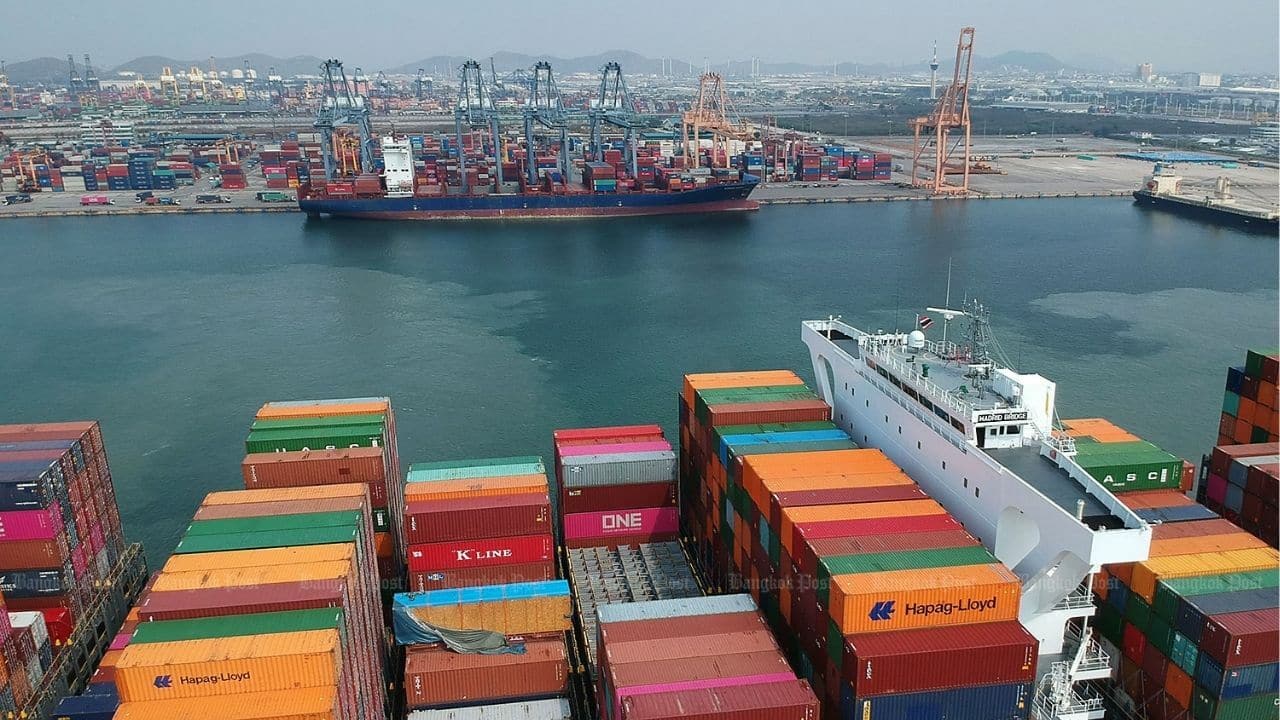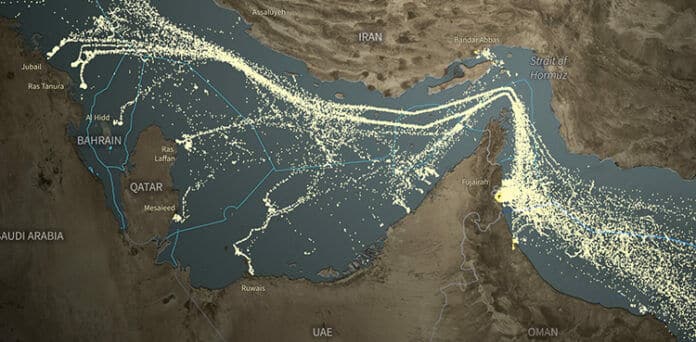Thai exports at risk as Strait of Hormuz closes
Thailand imported 57% of its crude oil from UAE, Saudi Arabia, Qatar, this year

Thai National Shippers’ Council chairperson Tanakorn Kasetsuwan yesterday discussed potential impacts following Iran’s decision to close the Strait of Hormuz due to Middle Eastern tensions.
Tanakorn yesterday, June 23, outlined six strategies to mitigate the effects on the oil, fertiliser, and agriculture sectors, urging the Thai government to ensure energy security and minimise long-term risks.
The closure of the Strait of Hormuz could significantly disrupt exports, particularly to the Gulf Coast, affecting major ports such as Jebel Ali, Doha, and Dammam.
In 2024, exports to the Middle East accounted for 3.5% of Thailand’s total exports. However, imports, constituting 9.27% from the Middle East, are expected to be more severely affected, especially crude oil and fertiliser imports.
In the first five months of 2025, Thailand imported 41.09% of its crude oil from the UAE, 12.04% from Saudi Arabia, and 3.35% from Qatar, making up 56.48% of the world total.

Fertiliser imports from the Middle East are also significant, with 42.37% coming from the region. This includes 27.71% from Saudi Arabia, 3.67% from Qatar, 3.48% from Jordan, 3.41% from Oman, and 2.3% from Bahrain. The agricultural sector in Thailand could face increased costs, pressuring prices, as it may be challenging to adjust sale prices to cover rising costs.
To address these challenges, Tanakorn suggested the Thai government focus on energy security by diversifying energy sources and increasing crude oil stockpiles, particularly from the United States. This strategy would offer dual benefits despite potential difficulties due to pre-arranged orders and varying oil quality affecting refined product ratios.
Additionally, supporting solar rooftop installations for households and industries could reduce dependency on oil and natural gas, mitigating long-term risks, reported KhaoSod.
Moreover, increasing fertiliser imports from alternative sources such as Russia, China, Malaysia, Laos, and Brunei is recommended.
For shipping alternatives, Tanakorn proposed utilising secondary ports, like Jeddah in Saudi Arabia and Salalah in Oman, with subsequent land transport to final destinations. It is crucial to discuss operational practices with transporters in advance.
Additionally, procedures for returning goods, customs duties, and associated costs must be considered carefully.
Latest Thailand News
Follow The Thaiger on Google News:


























